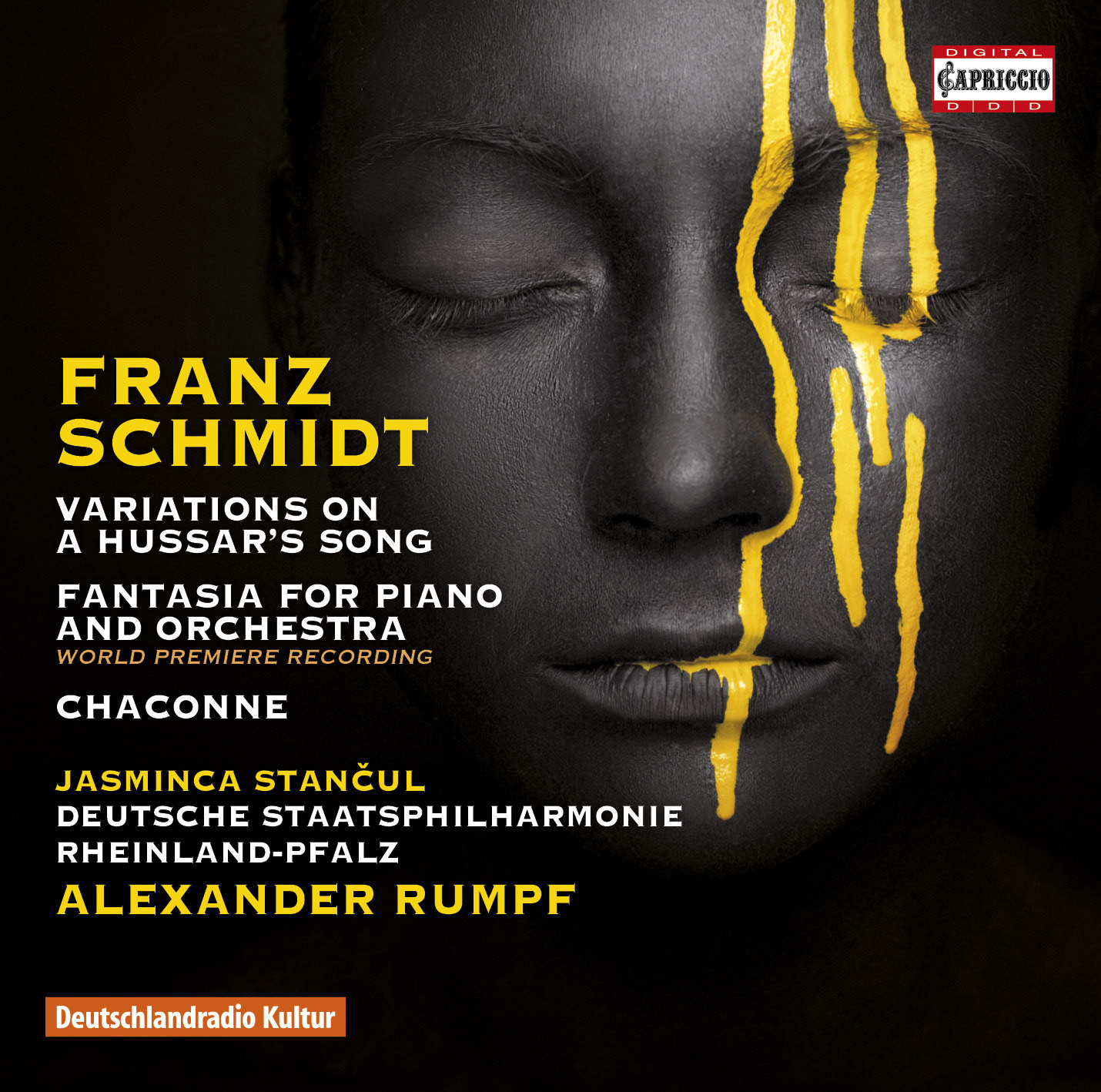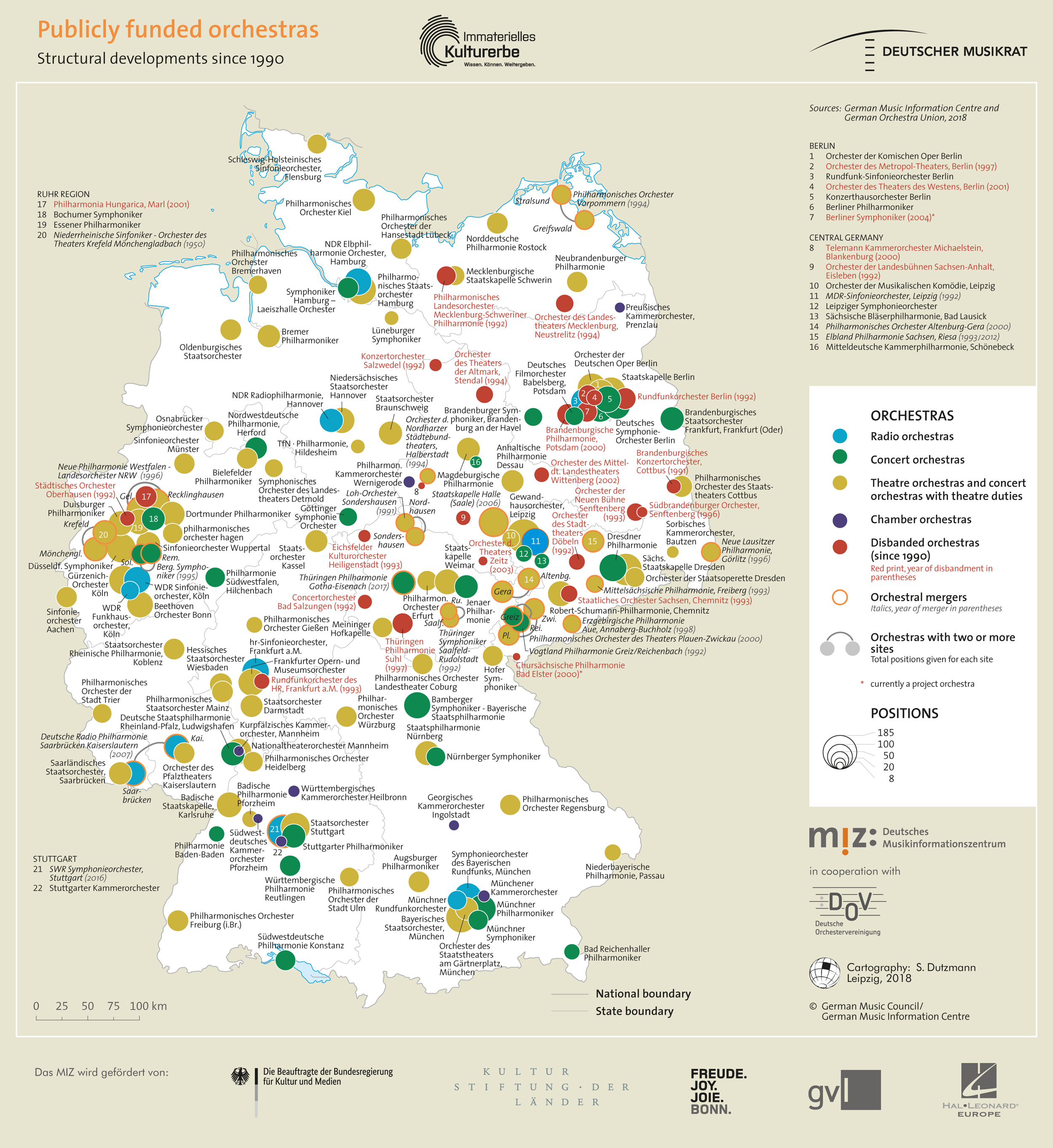Where should Classical Music lovers live?
Germany!
I can't even really speak to the quality of life there, but what I do know is, no matter where you turn, Germany has an orchestra awaiting.
Of course, the Berlin Philharmonic fills the royal seat, but there must be at least a dozen radio orchestras situated around the country.
We are talking about 130,000 square miles of land in Germany, so for those who love music, you can easily find an orchestra within every 10,000 square miles (sorry metric system), radio orchestras alone.
This isn't even taking into account choirs, chamber ensembles, and the like.
What is the point of this random drivel. Well, in this recording, we might not have the Berlin Philharmonic on hand, but the Rheinland-Pfalz State Philharmonic is an extremely capable and satisfying musical ensemble, one of so many with similar high quality in Deutschland.
Best yet, these regional orchestras get to mine such wonderfully rare music as these three Franz Schmidt works on this recording.
Having recently revisited Schmidt's symphonies, works which didn't really grab me at all this time around, I was absolutely enthralled by this recording.
Appreciably, Schmidt's late-Romantic wander-y-ness is at a low, and the variation forms shaping Hussar and the Chaconne really force the composer to write in smaller vignettes.
I was initially worried hearing the introduction of the Variations on a Hussar's Song, as it sounds chaotically chromatic, and I didn't take with any of it. Fortunately, once the theme appears, a perky, easily-identifiable, march-like Hussar tune, the piece takes off in fine mettle.
As in many great orchestral variations, Schmidt structures the work symphonically, where you can hear the witty Scherzo and the feathery slow movement betwixt the outer parts, and his harmonies and textures interestingly ramp up in complexity, while still demarcating the differing variation settings. Like in his early symphonies, Schmidt very much treats the orchestra in blocks, where the strings, winds, and brass are spotlighted and pitted against each other in colorful fashion.
By the time you reach Variation no. 13, he reminds the listener of the pert original tune after having gone far afield with the music, and 13's modulations are a particular hoot too!
The Fantasia for Piano is equally solid, and I like how the piano is more integrated into the orchestral fabric sonically, instead of shoved down my ears in front of the ensemble. The Fantasia is more of a Romantic Era sprawl, and Schmidt's structures rise to the occasion, where the feature piano cadenza in the middle of the work separates the opening and concluding bits.
I love the minor-keyed tune in the orchestral Chaconne; it reminds me of something Vaughan Williams might have dreamt up, relishing in an old musical form of its title. The opening portion sounds moody and ancient, and each time is reappears throughout its nearly 30 minute runtime, it is a remarkable moment. Quite frankly, the work is probably just too long, but I was held by the music for its full course.
I won't lie, the Rheinland-Pfalz State Philharmonic is fallible, where I can hear tiny flaws here and there, but this is a wonderful program played with such beauty and heart, I have no trouble overlooking the minutiae of this and that. I don't know conductor Alexander Rumpf, but I like his handling of this music, even if I could perhaps imagine even more power from time to time.
Listen on YouTube
Works
Variations on a Hussar's Song (26.15)
Fantasie for Piano and Orchestra (19.40)
Chaconne for Orchestra (27.31)
Performers
Rheinland-Pfalz State Philharmonic
Alexander Rumpf, conductor
Label: Capriccio
Year: 2016
Total Timing: 73.26
I really enjoyed my time with this one. I might not have warmed to Franz Schmidt's symphonies completely, but these sizable orchestral works did the trick.
Find more Franz Schmidt recordings HERE!




Comments
Post a Comment